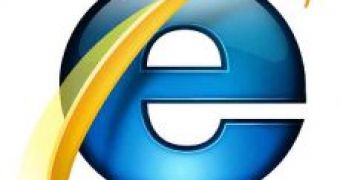The backbone of an Internet identity system is, in Microsoft's vision, composed of Extended Validation SSL Certificates intimately integrated with the users' browsing experience. In this context, the Redmond Company has already ensured that Internet Explorer 7 supports the new Extended Validation SSL (Secure Socket Layer) certificates, designed to deliver users with a guarantee of the legitimacy of websites.
As attacks techniques including spoofing and phishing along with social engineering evolve in complexity and are built to appear genuine to unsuspecting users, Extended Validation SSL (Secure Socket Layer) certificates will become a standard for identity. Markellos Diorinos, Security Product Manager for Internet Explorer at Microsoft welcomed the official ratification of the EV Guidelines v1.0 by the Certification Authority/Browser (CA/B) Forum.
"Internet Explorer 7 has supported EV SSL Certificates since February 2007, based on the then current draft 11 guidelines. At the time only incorporated businesses and government entities were able to get an EV Certificate, which was a cause of concern for some," he stated. "Version 1 of the guidelines (which are effective immediately) incorporates the experience from the past five months into the guidelines and expands the process so that now unincorporated businesses (such as sole proprietorships or general partnerships) can also get an EV certificate. Given the benefits that EV SSL brings with the verified identity information it offers to the users, there's no good reason today for using a traditional SSL certificate instead of an EV certificate. (EV certificates work like traditional SSL certificates on older browsers)."
The Extended Validation SSL (EV SSL) Certificates, created as an evolution of the existing SSL certificate format, are the backend of user trust on the Internet, delivering verifiable information associated with online entities. Mozilla and Opera have also indicated strong support for Extended Validation.
"Mozilla is excited to see the new Extended Validation Guidelines that have resulted from collaboration between Certificate Authorities," said Window Snyder, Chief Security Officer for the makers of the Firefox web browser. "EV SSL will make it easier for Firefox to tell users who is behind the website they're seeing, which is an important factor in making trust decisions."
"We welcome this move to create common guidelines for implementation of Extended Validation Certificates," said Christen Krogh, President of Engineering for Opera Software ASA. "We have always placed user security as our first priority and these certificates will improve digital identity assurance for users of compliant browsers."

 14 DAY TRIAL //
14 DAY TRIAL //